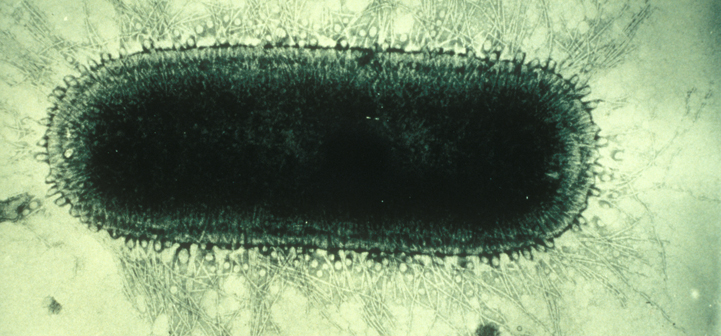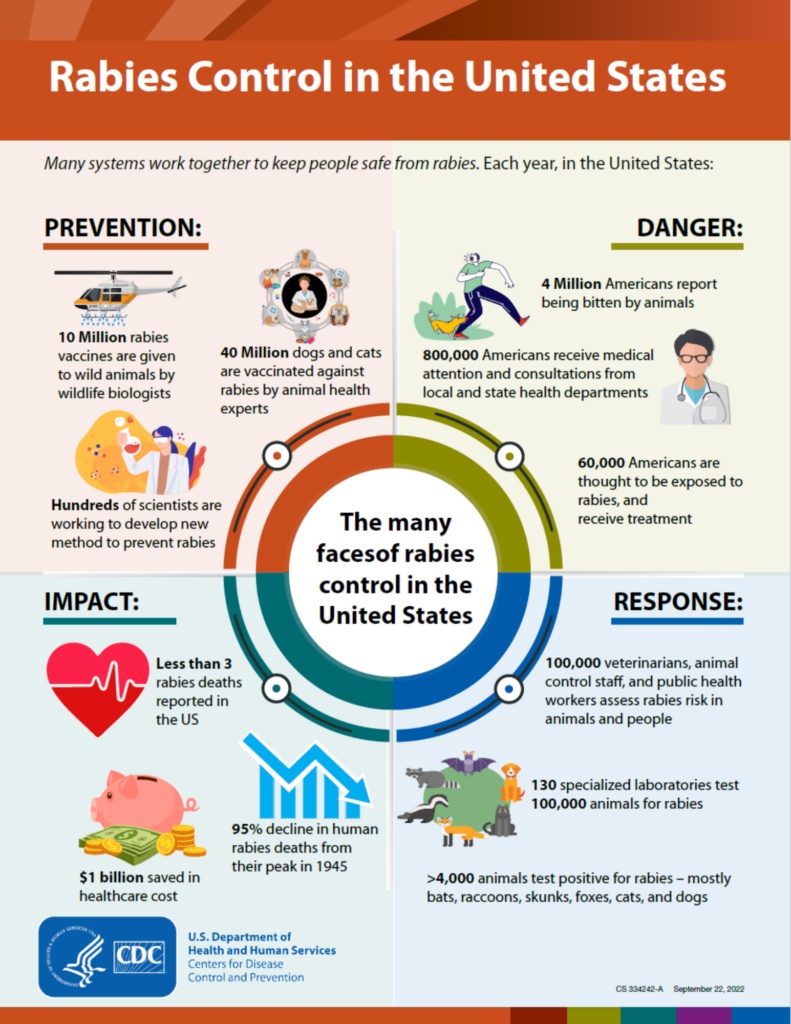
September 28th is World Rabies Day

“While rabies is a 100% preventable disease, nearly 60,000 people die from the disease around the world each year. World Rabies Day is an opportunity to reflect on our efforts to control this deadly disease and remind ourselves that the fight against rabies is not yet over. “ — Centers for Disease Control and Prevention
Did you know?
- Rabies is one of the oldest known diseases in history with cases dating back to 4,000 years ago.
- For most of human history, a bite from a rabid animal was uniformly fatal. People were so scared of rabies that after being bitten by a potentially rabid animal, many would commit suicide.
- Rabies has been referred to as hydrophobia (“fear of water”) throughout its history due to symptoms in the later stages of infection in which the person has difficulty swallowing, shows panic when presented with liquids to drink, and cannot quench their thirst.
- While rabies appears to have originated in the Old World, the first known case of rabies in the New World was observed in Boston in 1768.
- A vaccine was developed in 1885 by French chemist and microbiologist Louis Pasteur and bacteriologist/immunologist Émile Roux. Their original vaccine was harvested from infected rabbits, from which the virus in the nerve tissue was weakened by allowing it to dry for five to ten days.
- September 28th marks the anniversary of Louis Pasteur’s death and has been established as World Rabies Day to spread rabies awareness globally.
- While rabies is well controlled in the United States, globally nearly 60,000 people die each year due to rabies. Most of these deaths are in children.
- On World Rabies Day, we can renew our commitment to eliminate human rabies deaths in people. You can help by keeping pets up to date on their rabies vaccination,
Ever wonder what the rabies virus looks like under a microscope? See below:

Rabies Prevention on Cape Cod
The Barnstable County Department of Health and Environment, in conjunction with the Cape Cod Rabies Task Force, continues to assist towns with maintaining control of terrestrial raccoon rabies on Cape Cod through the Cape Cod Oral Rabies Vaccine (ORV) Program. The program is praised as one of the longest running, increasingly successful projects to control rabies in the country!
Want to learn more about rabies? Visit Rabies | Mass.gov!
Also, check out this infographic from the Centers for Disease Control and Prevention’s World Rabies Day webpage:




